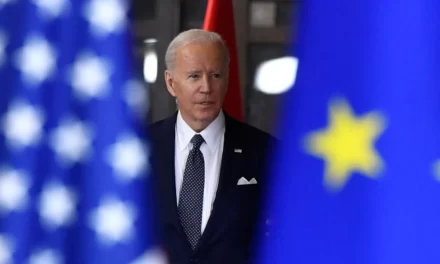
China: A Woman’s place is in the Home?

One might expect a progressive approach to societal values, especially give that the communist ideal is actively hostile to the idea of the nuclear family. But in China, the Communist Party’s relentless pursuit of its ever-evolving vision for culture has created a perplexing paradox. As the nation grapples with demographic challenges and a sluggish economy, it is actively pushing women back into traditional roles, reinforcing traditional gender norms in the process.
At the forefront of this transformation stands Xi Jinping, China’s paramount leader. He recently took center stage at the National Women’s Congress, an event held every five years to showcase the party’s commitment to women’s rights. This year, however, was marked by the conspicuous absence of women in the party’s top policymaking body, highlighting a concerning shift away from gender equality.
Xi’s message during the event focused squarely on urging Chinese women to marry and have children, sidelining any mention of women’s roles in the workforce. This singular emphasis on traditional family values has left many women feeling alarmed and marginalized, prompting them to push back against the dual oppressions of an authoritarian government and a patriarchal society.
Yaqiu Wang, the research director for Hong Kong, China, and Taiwan at Freedom House, a nonprofit based in Washington, succinctly captures the sentiment: “Many women in China are empowered and united in their fight against the twin repressions in China: the authoritarian government and the patriarchal society.”
The Communist Party’s response to these concerns has been far from inclusive. Conversations on topics like sexual harassment, gender violence, and discrimination are swiftly silenced on social media platforms, and support for victims is consistently stifled. Prominent feminists and outspoken advocates have faced imprisonment, forcing the #MeToo movement, once a beacon of hope, to go underground.
Xi’s rhetoric, as evidenced in his recent speech, underscores the party’s vision of a resurgent China steeped in traditional values. He urged female leaders to “tell good stories about family traditions and guide women to play their unique role in carrying forward the traditional virtues of the Chinese nation.” This starkly contrasts with a decade ago when top officials championed both gender equality and women’s self-realization.
Hanzhang Liu, a political studies professor at Pitzer College, who has examined speeches by senior officials at several congresses over the past two decades, notes the shift: “Women’s work was once about women for themselves, women for women’s sake. Now what they are saying is that women’s rightful place in society — where they can do the most meaningful work — is at home with the family.”
The National Women’s Congress, organized by the All-China Women’s Federation, an organization funded by the party, has become a platform that represents the political status quo. Instead of addressing pressing gender issues, the event now focuses on promoting traditional family values, signaling the party’s belief that celebrating China’s past will inspire women to prioritize family life over career aspirations.
This shift in women’s roles also aligns with China’s economic challenges. As the country faces its most significant economic slowdown in four decades, the government grapples with an underdeveloped social welfare system, ill-equipped to support an aging population. Placing women back in the home, caring for children and the elderly, aligns with the party’s interests in managing this economic crisis.
However, this move is met with resistance from many young and educated women in China’s major cities. They have embraced financial independence and are wary of the societal pressure associated with marriage and child-rearing. The uncertain economic future and the high cost of raising a child in China have added to their ambivalence towards traditional family roles.
Despite Xi’s appeals for women to have more children, the party’s initiatives are unlikely to be sufficient to reverse the country’s population decline, unless it resorts to more coercive measures, akin to those implemented during the infamous “one-child” policy era.
In this time of uncertainty, China finds itself grappling with a shifting social contract. The party’s focus on “common prosperity” and heightened emphasis on security and traditional values has left the populace in a state of unease. The once straightforward contract, promising economic opportunity in exchange for political compliance, has given way to vague assurances of a “better life” and security.
To revitalize its economy and address structural challenges, experts suggest a series of bold reforms, including fiscal, financial, retirement age, and pension reforms. Additionally, abolishing the hukou system, which creates second-class citizens among rural and migrant workers, could promote urbanization and stimulate property demand.
As China stands at a crossroads, it faces not only economic challenges but also a disillusioned populace that questions its future. While social unrest may not be imminent, a growing sense of cynicism and a loss of optimism among the people could pose significant long-term challenges for the nation’s leadership.
Shifts in culture are common in humanity and perhaps cyclical. The worry is not the shift, it is the cause of an abrupt shift. For example, Iran’s culture changed from modern and liberal to oppressive, aggressive fundamentalism because of a religious revolt. China’s culture has changed because a totalitarian government tells the Chinese that its culture must change. Change by edict is almost universally bad.

























These are facts that declare how low the man child will go. He has the respect of an atheist for…
Larry, While I am basically in favor of space exploration, and can agree that going to space for a few…
Trump is quick with his pushing responsibility on Biden and Democrats for his own mistakes in judgment and knee jerk…
Larry, You act surprised that Trump is being taken advantage of? Trump is (and always has been) a chump. He…
Thanks forcthe update. Noem.